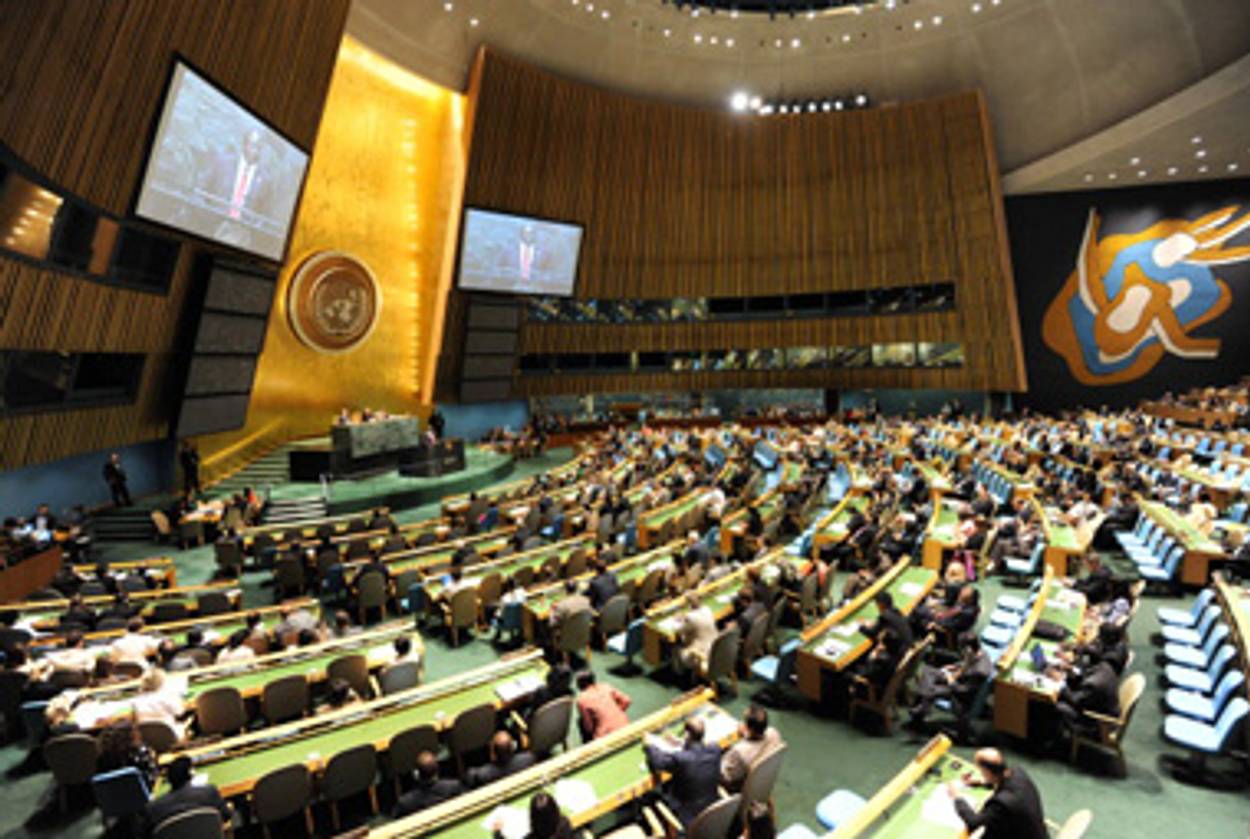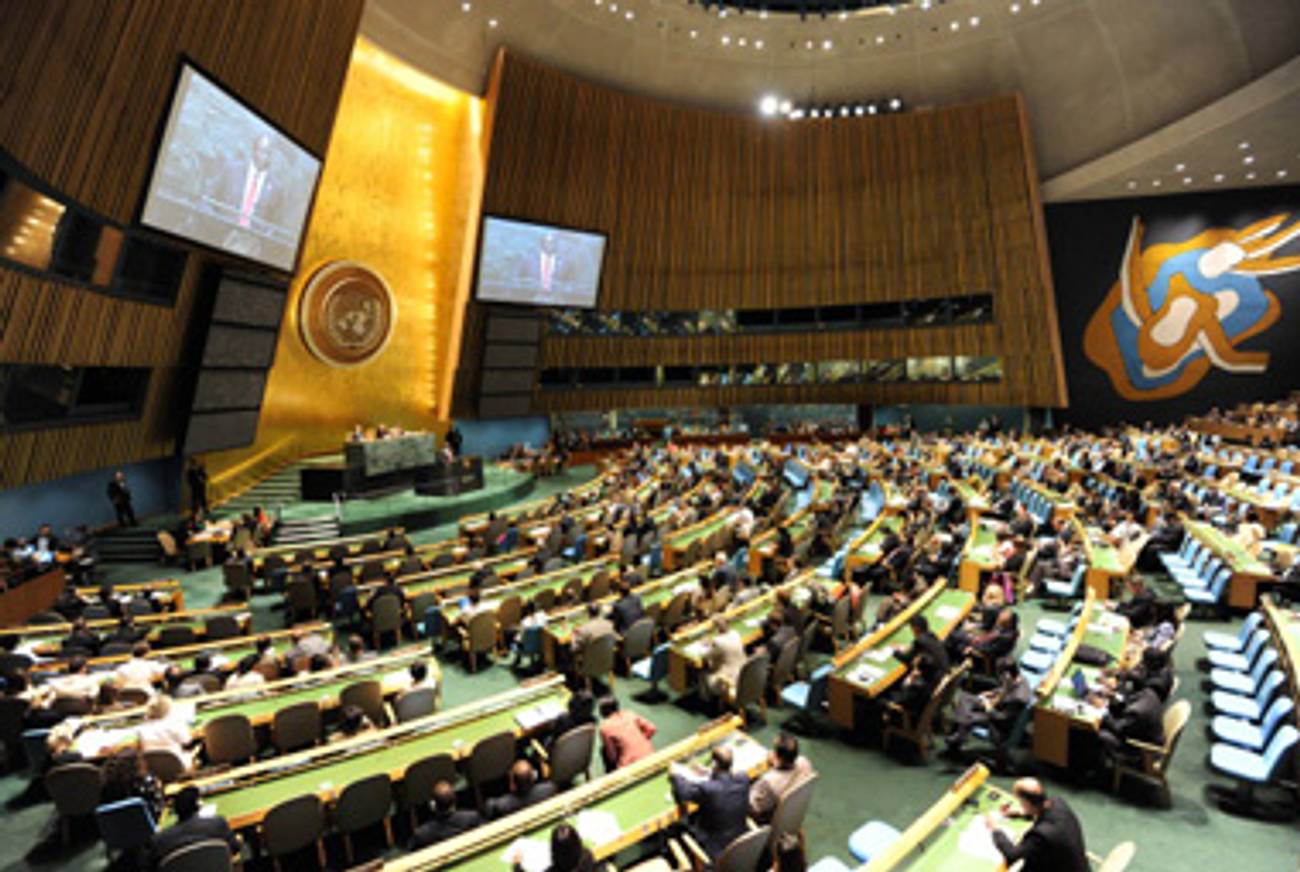Is The P.A. Statehood Drive Good For the P.A?
Not really. Let us count the ways.




The Fatah-led Palestinian Authority is practically the only bloc particularly excited about seeking statehood along the 1967 lines next month at the United Nations. We know how Israel feels, of course. And only today, the consul general in Jerusalem told chief P.A. negotiator Saeb Erekat that the United States would veto any Security Council resolutions (which would provide binding statehood) and would resort to “punitive measures,” including cutting aid, if it sought a less-binding status upgrade in the General Assembly, where the U.S. lacks veto power.
But we shouldn’t forget who else does not want U.N. statehood: those maximalists who insist that the Palestinian state ought to consist of all the land between the river and the sea, and that accepting anything less is a treacherous compromise. Hamas, which rules part of that land right now, blew up its reconciliation with the P.A. primarily because it could not get on the P.A.’s statehood train. And today in Lebanon, Hezbollah leader Hassan Nasrallah declared, “As far as we are concerned, Palestine is from the ocean to the river, and no one has any right to give up one grain of its land or one drop of its water.” Awkward.
There is an additional snag: A new report suggests that an upgrade of the P.A. at the U.N. would actually have logistical (in addition to political) negative ramifications on the peace process, in that it would weaken the standing of the Fatah-dominated Palestine Liberation Organization, which is currently the sole representative of the Palestinians at the U.N. and the sole group authorized to formally negotiate with Israel. The consequence of this would be to deny all Palestinians outside of the Palestinian territories—who are actually a crucial part of the Palestinians’ claim for a “right of return,” and are invariably (and correctly) counted as among those who were or who are the descendants of those who had to flee their homes during the Israeli War of Independence—any U.N. representation.
So a P.A. move at the U.N. will result in nothing binding; if it accomplishes anything, will lead to the loss of crucial U.S. money and also renewed hostility from its Iran-backed rivals; and in addition might provoke the legitimate ire of only further dispossessed diaspora Palestinians who otherwise might be inclined to support it.
U.S. Envoy: We Will Stop Aid to Palestinians if U.N. Bid Proceeds [DPA/Haaretz]
Fatah-Hamas Reconciliation Stalls over Palestinian Statehood Bid [AP/Haaretz]
Nasrallah: Palestinians Must Not Give Up on ‘Grain of Sand or Drop of Water’ in Fight for State [Haaretz]
U.N. Bid May Erode PLO’s Status: Palestinian Report [Xinhua]
Marc Tracy is a staff writer at The New Republic, and was previously a staff writer at Tablet. He tweets @marcatracy.